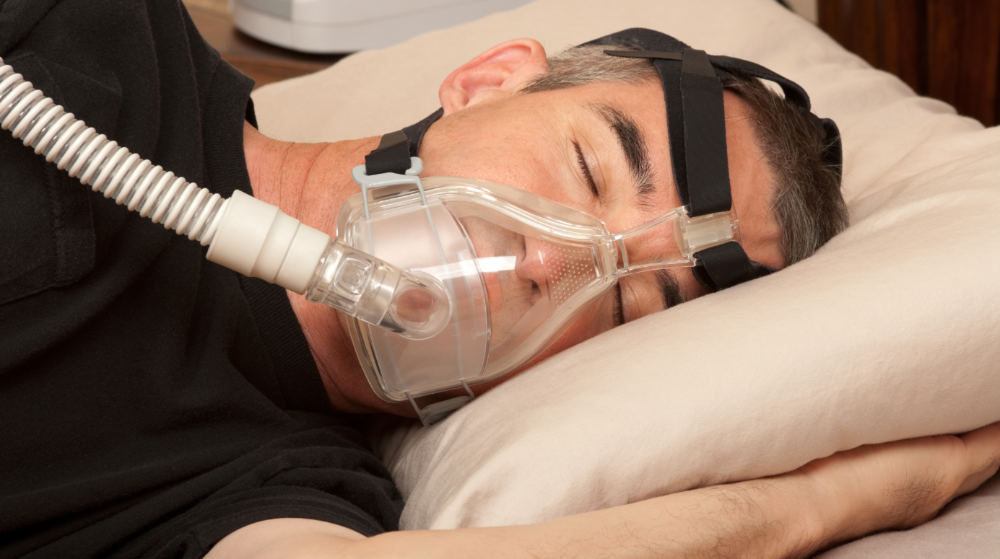Sleep Apnea Surgery FAQ | Treatment, Side Effects, and Recovery
Planning to undergo sleep apnea surgery soon? Here’s everything you need to know about the procedure and what to expect after.
RELATED: How to Avoid Alzheimer’s Disease
Sleep Apnea Surgery: Treatment, Side Effects, and Recovery
What is Sleep Apnea?

Sleep apnea is a disorder involving abnormal breathing lapses during sleep. Unusual pauses in breathing take place and it can affect the body’s supply of oxygen, which may become life-threatening.
The condition is often accompanied by loud snoring, insomnia, and difficulty breathing while asleep. You may also experience headaches and a dry mouth in the morning due to the lack of proper sleep.
What Causes Sleep Apnea?

There are three types of sleep apnea with different causes:
1. Obstructive Sleep Apnea
This disorder is marked by the blockage of the airway at the back of the throat. These muscles, when relaxed, force the airway to close as you breathe. It may become a pattern involving breathing lapses of more than 10 seconds, repeating up to 30 times within an hour.
2. Central Sleep Apnea
Central sleep apnea occurs when the brain is unable to transmit proper signals to the muscles involved in respiration. This can lead to shortness of breath, which may prevent you from getting restful sleep.
3. Complex Sleep Apnea Syndrome
This happens when you have both obstructive sleep apnea and central sleep apnea. It is considered a “treatment-emergent” sleep apnea that will require more than just the help of a continuous positive airway pressure (CPAP) machine.
What are the Risk Factors for Sleep Apnea?

- Obesity
- Nasal congestion
- Thick necks with narrow airways
- Use of sedatives, tranquilizers, or alcohol
- Smoking
- Family history
- Hormonal abnormalities
- Other underlying medical conditions (heart disorders, stroke, chronic lung diseases, type 2 diabetes, high blood pressure, etc.)
Can You Cure Sleep Apnea With Surgery?

Most cases of sleep apnea involve the use of CPAP devices, but they do not offer permanent solutions. They certainly help in improving your quality of sleep by providing sufficient airflow, but they will only work during use.
If relying on oral appliances no longer seems practical for you, opting for sleep apnea surgery is possible. There are no specific procedures that can guarantee a 100% success rate, but most of them can offer long-lasting benefits.
How is Sleep Apnea Surgery Performed?

There are different types of procedures you can undergo, depending on the severity of your condition:
1. Uvulopalatopharyngoplasty (UPPP)
One of the most common treatments done to cure sleep apnea is the UPPP. It is performed with a tissue rearrangement by removing excess tissue in the throat to open up the airway. The procedure involves the uvula, soft palate, and tonsils.
2. Maxillo-mandibular Advancement (MMA)
The MMA is an orthognathic surgical procedure that aims to enlarge the airway space by repositioning the upper jaw and lower jaw. These bones are moved forward to relieve any airway obstruction.
3. Radiofrequency Volumetric Tissue Reduction (RFVTR)
Using radiofrequency energy, thermal lesions are done on the soft palate to remove tissue in the back of the throat. It is less invasive than other procedures and is commonly used to treat snoring.
4. Septoplasty and Turbinate Reduction
These two surgeries allow the improvement of airflow in your nasal passage. Septoplasty corrects any deformities in the nasal septum. It is usually combined with turbinate reduction, which targets enlarged turbinates that may interfere with your breathing.
5. Palatal Implants
Palatal implants are recommended in relieving snoring by inserting small filaments into the soft palate. These implants help stiffen the tissues surrounding the area to prevent further blockage in the airway.
6. Laser-assisted uvulopalatoplasty (LAUP)
LAUP uses a carbon dioxide laser to ablate the soft palate, requiring multiple sessions to trim the uvula. This treatment may take some time to complete, considering that each session must be done in intervals of 3-4 weeks.
7. Tracheostomy
For more serious cases of sleep apnea, tracheostomy may be the last resort. It is only up for consideration if other treatments have failed or cannot work.
An incision is made at the trachea (windpipe), where a tube is inserted to create an opening. This specific opening allows the movement of air, bypassing blockage in the upper airway. A valve is often used to cover the tube during the day.
What are the Side Effects of Sleep Apnea Surgery?

- Difficulty in swallowing
- Globus sensation
- Voice changes
- Jaw numbness
- Sore throat
- Bleeding in the treated area
- Infection
Does Surgery Change Your Voice?

Since most of the procedures involve the removal and rearrangement of tissues around the throat, changes in your voice are possible. Different modifications may vary depending on the type of surgery.
Can Sleep Apnea Return After Surgery?

Sleep apnea is a chronic condition that is very difficult to treat and cannot be permanently cured without the necessary lifestyle changes. However, the available surgeries can help alleviate the symptoms of sleep apnea and improve your breathing during sleep.
Weight-loss, especially for obese patients, can help lessen the chances of these symptoms from recurring after surgery.
How To Prepare for Surgery Day

1. Secure the recommendation of your ENT for surgery.
2. Disclose any allergies to your doctor, especially if you’re allergic to anesthesia.
3. Do not eat or drink anything at least 12 hours before surgery.
4. Avoid caffeine or alcohol within the week of your surgery.
5. Ask for the go-signal from your doctor if you need to take any medication before your surgery.
Post-Op Recovery and Home Care

- Rest for at least 48 hours at home after surgery and avoid any physical or vigorous activity.
- Drink plenty of fluids after surgery and avoid hot liquids.
- A soft diet is recommended for the first two weeks or until your doctor allows you to transition to solids.
- Ask for your doctor’s approval before taking any pain medication.
- Make sure to follow your doctor’s instructions on how to clean your surgical wounds.
- If you experience any bleeding from the treated area, call your doctor immediately.
Before you decide to go for sleep apnea surgery, it is important to consult your doctor. Some procedures may not work for you, especially if your condition is severe. Using a CPAP machine is still the way to go, along with a proper lifestyle change.
Up Next:
- Peyronie's Disease FAQs
- Chronic Balanitis Treatment: Can Circumcision Help?
- 11 Amazing Cryotherapy Benefits
Calling all crafting Health Buffs! If you’ve got the gift of keeping healthy and sharing this knowledge through writing, click here if you want to write for us.
Please stay connected with us on Facebook, Twitter, Instagram, and Pinterest, and make sure to join our community of healthy living and minded people here.
Trending
Get Updates
SIGN UP FOR OUR NEWSLETTER TODAY

Bedtime Routine Reset: Beat the DST Slump and Sleep Better!

Wellness Rituals for St. Paddy’s: Celebrate & Stay Energized!

How To Deal With And Prevent Tick Bites
Related

Bedtime Routine Reset: Beat the DST Slump and Sleep Better!

